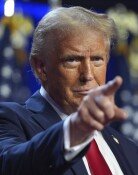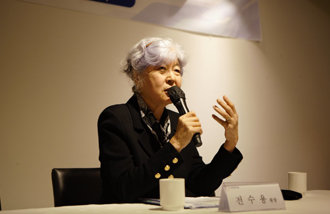S. Korean businesses fear fallout from U.S. investment ban on Chinese tech
S. Korean businesses fear fallout from U.S. investment ban on Chinese tech
Posted August. 16, 2024 07:46,
Updated August. 16, 2024 07:46
The upcoming implementation of a policy restricting U.S. investment in Chinese high-tech industries has prompted Korean businesses to express concerns to the U.S. government. They are worried that the policy's vague provisions could potentially prevent Korean companies with regional branches in the U.S. or those that have received U.S. investment from investing in China. Despite the impending U.S. presidential election in November, both major political parties—Republican and Democratic—support a ban on U.S. investments in China, indicating that the investment restrictions are likely to be enforced.
In June, the U.S. Treasury proposed regulations to prohibit U.S. nationals and businesses from financing sensitive technologies, such as semiconductors, artificial intelligence (AI), and quantum technology, in China. These regulations are expected to be finalized and come into effect this year. Although the law targets U.S. capital, the guidance is unclear, which could mean that any company receiving even minimal U.S. investment may be affected. This uncertainty extends to South Korean companies with regional branches in the U.S., those with U.S. nationals involved in decision-making, and U.S. companies with factories in South Korea.
If these proposed regulations are implemented, Solidigm—a company formerly part of Intel's SSD business, acquired by SK hynix for 11 trillion won and currently based in the U.S.—could be barred from investing in China. Solidigm's core product, NAND, used in large-capacity data storage devices, is manufactured in Chinese factories. Additionally, efforts to develop global standards in quantum technology, spearheaded by the South Korean government and local businesses, might be hindered by the investment ban, especially given IBM's involvement in standard-setting committees. AI start-ups with U.S. and South Korean venture capital investments based in Silicon Valley might also face obstacles in entering the Chinese market.
The proposed regulations not only target investments in China but also extend to countries deemed as “affiliated with nationals from the countries of concern.” This broad definition could encompass South Korean companies that supply semiconductors to China or import materials from there, effectively placing many South Korean businesses engaged in trade with China under regulatory scrutiny. U.S. high-tech industries also worry about how these investment restrictions might negatively impact U.S. competitiveness and hinder collaboration with allies including South Korea.
The ongoing “spear and shield” rivalry between the U.S. and China is intensifying, with Chinese companies like Huawei stockpiling high-bandwidth memory chips—primarily produced by Samsung Electronics and SK hynix—in anticipation of stricter U.S. regulations. This competition could have ripple effects on South Korean companies that are closely linked to both nations. South Korea should heed the lessons learned from its previous slow response to the legislative process surrounding the Inflation Reduction Act.
Headline News
- US: Japan will double its defense budget, and so should S. Korea
- Trump's win could present opportunities for S. Korean defense firms
- ‘Don’t expand the war in Ukraine,’ Trump tells Putin
- Korean fencing men's sabre wins World Cup team event
- Yoon who should take the lead and reinvent for the second half of his term







